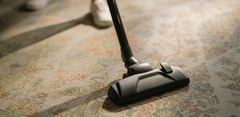Does Homeowners Insurance Cover Mold?
The homeowners insurance policy provides you with the ability to cover various property-related damages. One often wonders whether it covers mold. This question often holds more critical when purchasing an old home and wants to avoid costly expenditures. However, a one-line answer is that there is no clear cut answer to the given situation. In other words, mold damage is covered if it is related to a covered peril.
Focus on Preventive Measures
The flooding-induced mold damage will need to be covered by a separate flood insurance policy. Apart from focusing on whether your insurance policy covers mold damage, it is better to focus on the proper preventive measures to offset the mold issue.
Type of Mold Covered by Insurance Policy
There are several ‘covered perils’ that are covered by several homeowners insurance policies. The ‘covered perils’ refers to the list of damages for which you as an insurer can claim. Take an idea or to get proper information by reading online reviews like reviews about AKA Landlord Insurance that what is the mold coverage in homeowners insurance policy.
Mold Formation Applicable
Water seeping is the most common reason for mold formation. Therefore, it is essential to look at the type of water-related damages covered by the insurance policies. The insurance policies most cover damages about mold formation if a malfunctioning appliance is caused by water leakage, a burst water heater causing damage, and firefighters caused water damage, which extinguishes fire on a home.
Understanding the Difference between ‘Resulting Damage’ and ‘Initial Damage’
The above factors like malfunctioning appliance, bust water heater, and firefighting related damages are ‘resulting damages’ from a covered peril. Consider a situation in which a water heater breaks and causes mold in the walls. In the given case, the insurance policy will cover the repairing of the wall and removing of the mold, but the policy will not replace the water heater. However, it is also important to note that the procedure might not be covering all resulting damages from mold repair and replacement. In most cases, the payment given for mold repair and replacement is generally a maximum of $10,000 for a single time.
In some cases, higher coverage limits are also available. In that case, one should seek the opinion of the independent insurance agent about potential options.
Natural Interventions Caused Mold
There are some cases in which mold is caused by natural interventions like flooding or other wild acts. In such scenarios, it is essential to look at the sources through which the mold is induced in the first place.
Flood Needs Separate Insurance Policy for Covering Mold
Standard homeowners insurance does not cover mold caused by storm surges or floods. It is because these insurance policies do not cover flood damage. One has to opt for flood insurance to cover such damages.
Mold Removal and Repair in Flood Insurance
If you have a flood insurance policy, the policy will cover home-related damages caused by rains, hurricanes, or other natural acts. In this case, the policy will cover mold removal and repairs. Generally, a flood insurance policy costs about $700 per annum in addition to a standard homeowners policy. The cost of a flood insurance policy increases for those areas which are at significant risk of flooding.
Need Flood Insurance for Covering Mold related Damages
If you live in an area exposed to flooding, it is strictly recommended to opt for a flood insurance policy to cover the higher damage costs related to mold. According to an estimate, a single inch of water in your home can cause damage to about $25,000. Therefore, such high prices can be offset with a flood insurance policy that provides mold coverage.
On the other hand, a hurricane or ice storm caused by a homeowners policy usually covers mold. In scenarios where a hurricane broke apart your home roof and contributed towards decay, then you have the right to file for damages with the insurance provider.
Conclusion
In case your insurance provider does not offer you mold-related damages. You might be advised to reach out to a licensed contractor to get a second opinion about the injuries. If your insurance provider has a specified appeals process, you should think of appealing the denial as an insurer. If all options are exhausted, then the last remaining option will be to reach out to your state insurance commissioner. He might assist you in either getting your claim approved or guiding you about filing a complaint about the denial of mold-related damages to the insurance provider. In brief, mold can create financial headaches for homeowners, therefore, reach out to an independent insurance agent and explain to him or her the issue and seek out the best possible options for your home-related damages caused by mold.






